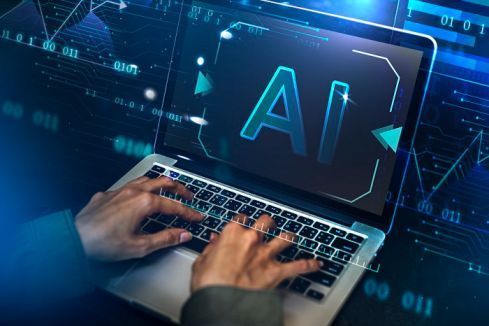Welcome to our captivating and informative blog post, where we take you on an exhilarating journey through the ever-evolving world of technology. From the early days of simple gadgets to the groundbreaking advancements in artificial intelligence, we invite you to dive deep into this fascinating realm that shapes our lives in unimaginable ways.
Technology has come a long way since its humble beginnings, revolutionizing how we communicate, work, and even think. It has become an integral part of our daily routines, seamlessly integrating into every aspect of modern life. So fasten your seatbelts as we embark on this thrilling exploration of the history, types, impact, and trends that make up the vast universe of technology. Let’s get started!
What is the History of Technology?
The history of technology is a captivating tapestry woven by the ingenuity and curiosity of humans throughout the ages. It stretches back thousands of years, beginning with primitive tools crafted from stones and branches. These early innovations laid the foundation for future advancements that would shape civilizations.
As time progressed, so did technology. The invention of the wheel in ancient Mesopotamia revolutionized transportation and trade routes. The creation of written language gave rise to knowledge preservation and communication across vast distances.
Fast forward to the Industrial Revolution, a period marked by groundbreaking inventions like steam engines and mechanization. This era propelled society into an age of mass production and transformed economies worldwide.
The 20th century witnessed exponential growth in technological achievements. From Thomas Edison’s light bulb to Alexander Graham Bell’s telephone, these inventions forever changed how we connect.
Then came computers—the game-changers that brought about a digital revolution. With each passing year, computer systems became faster, smaller, and more powerful—a trend known as Moore’s Law.
Today, we find ourselves immersed in an era where cutting-edge technologies such as artificial intelligence (AI), virtual reality (VR), and the Internet of Things (IoT) dominate headlines. These advancements are reshaping industries like healthcare, finance, transportation, and entertainment—ushering us into an exciting new chapter in technological history.
From humble beginnings to mind-boggling feats of innovation—technology has relentlessly pushed boundaries while empowering humanity along its remarkable journey.
What are the different Types of Technology?
Technology is a vast and ever-expanding field that encompasses various types of tools, devices, and systems. Each type serves a specific purpose and brings its own set of advancements to the table.
One prominent type of technology is communication technology. This includes everything from smartphones and laptops to social media platforms and video conferencing tools. Communication technology has revolutionized the way we connect with others across the globe, making it easier than ever before to share information and stay in touch.
Another type is entertainment technology, which includes television sets, gaming consoles, virtual reality headsets, and streaming services. These innovations have transformed how we consume media and enjoy our leisure time.
Medical technology plays a crucial role in healthcare by providing advanced equipment for diagnosis, and treatment, monitoring patients’ conditions, and conducting research. From MRI machines to robotic surgical systems – these technological advancements have greatly improved patient outcomes.
Transportation technology has also come a long way over the years. Electric cars are becoming more popular as they offer an eco-friendly alternative to traditional vehicles powered by fossil fuels. Additionally, autonomous vehicles are on the rise – promising safer roads with reduced human error.
Industrial technology encompasses machinery used in manufacturing processes such as robotics systems or 3D printers. These technologies streamline production processes resulting in increased efficiency and productivity for businesses across different industries.
Last but not least AI (Artificial Intelligence) is another significant category within modern technology that has gained immense popularity recently. AI can be found in chatbots assisting customer service interactions or personal assistants like Siri or Alexa who make our lives more convenient by answering questions or performing tasks for us seamlessly.
As you can see from just this brief overview of different types of technologies available today; there’s no doubt that each one contributes its unique value towards improving various aspects of our daily lives!
How does Technology Affect our Lives?
Technology has become an integral part of our lives, profoundly impacting the way we live and interact with the world around us. From the moment we wake up to the time we go to bed, technology plays a significant role in almost every aspect of our daily routine.
In terms of communication, technology has revolutionized how we connect with others. With just a few taps on our smartphones or clicks on our laptops, we can instantly reach out to friends and family across the globe through social media platforms, video calls, or instant messaging apps. Distance is no longer a hindrance when it comes to staying connected.
Moreover, technology has transformed various industries such as healthcare, education, and entertainment. In healthcare, advancements in medical devices and software have improved diagnosis accuracy and treatment options for patients. Virtual classrooms and online learning platforms have made education accessible to individuals worldwide. Streaming services have brought endless entertainment choices right into our living rooms.
Additionally, technology has enhanced productivity levels by automating repetitive tasks and providing efficient tools for work purposes. The advent of artificial intelligence (AI) has further accelerated this transformation by enabling machines to perform complex tasks that were once exclusive to humans.
However, judi slot triofus it’s essential to consider both the positive and negative impacts of technology on society. While technological advancements have brought numerous benefits like convenience and efficiency in various aspects of life, they also present challenges such as privacy concerns or job displacement due to automation.
In conclusion (not conclusive), as technology continues its rapid evolution, it will continue shaping how we live our lives – from enhancing communication networks to transforming entire industries. Individuals and societies alike must embrace these changes while being mindful of their potential implications for personal well-being and societal progress.
What Trends are Shaping the World of Technology?
Trends are constantly shaping the world of technology, pushing boundaries and opening up new possibilities. One major trend that is currently making waves is Artificial Intelligence (AI). With advancements in machine learning and deep learning algorithms, AI is revolutionizing various industries such as healthcare, finance, and even transportation.
Another significant trend is the Internet of Things (IoT), which refers to a network of interconnected devices that can communicate with each other. From smart homes to wearable devices, IoT has transformed how we interact with our surroundings. It offers convenience and efficiency by allowing us to control our appliances remotely or monitor our health in real time.
Cloud computing has also gained immense popularity in recent years. By storing data on remote servers instead of local devices, cloud computing provides flexibility and scalability for businesses. It allows easy access to information from anywhere while reducing infrastructure costs.
Blockchain technology has emerged as a game-changer in sectors like finance and supply chain management. Its decentralized nature ensures transparency, security, and trustworthiness in transactions.
Furthermore, Virtual Reality (VR) and Augmented Reality (AR) have taken entertainment and gaming experiences to new heights. These immersive technologies create virtual environments or overlay digital content onto the physical world.
The rise of 5G technology promises faster internet speeds that will enable seamless connectivity for an array of applications like autonomous vehicles, smart cities, and more efficient communication systems.






Your point of view caught my eye and was very interesting. Thanks. I have a question for you.